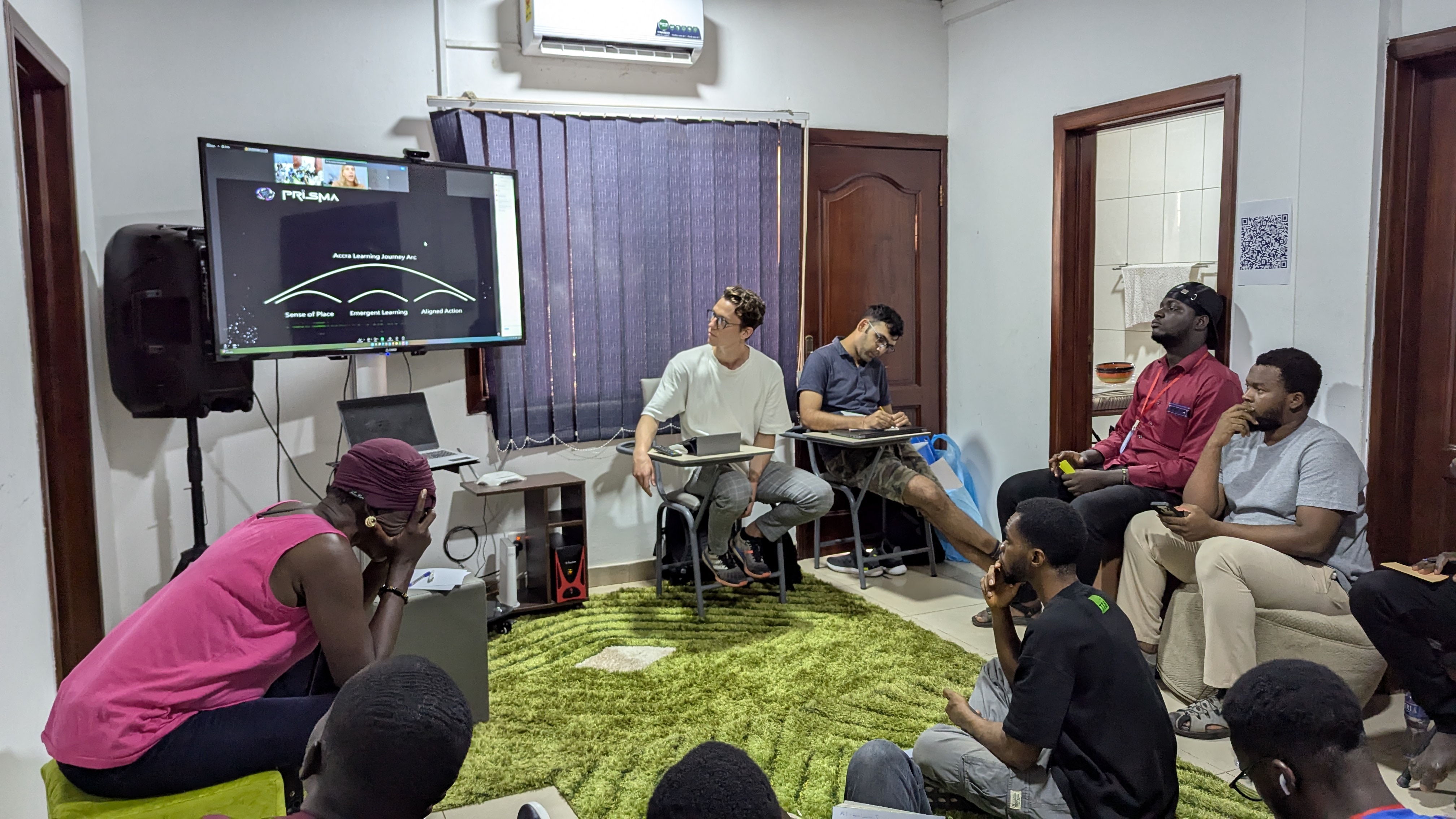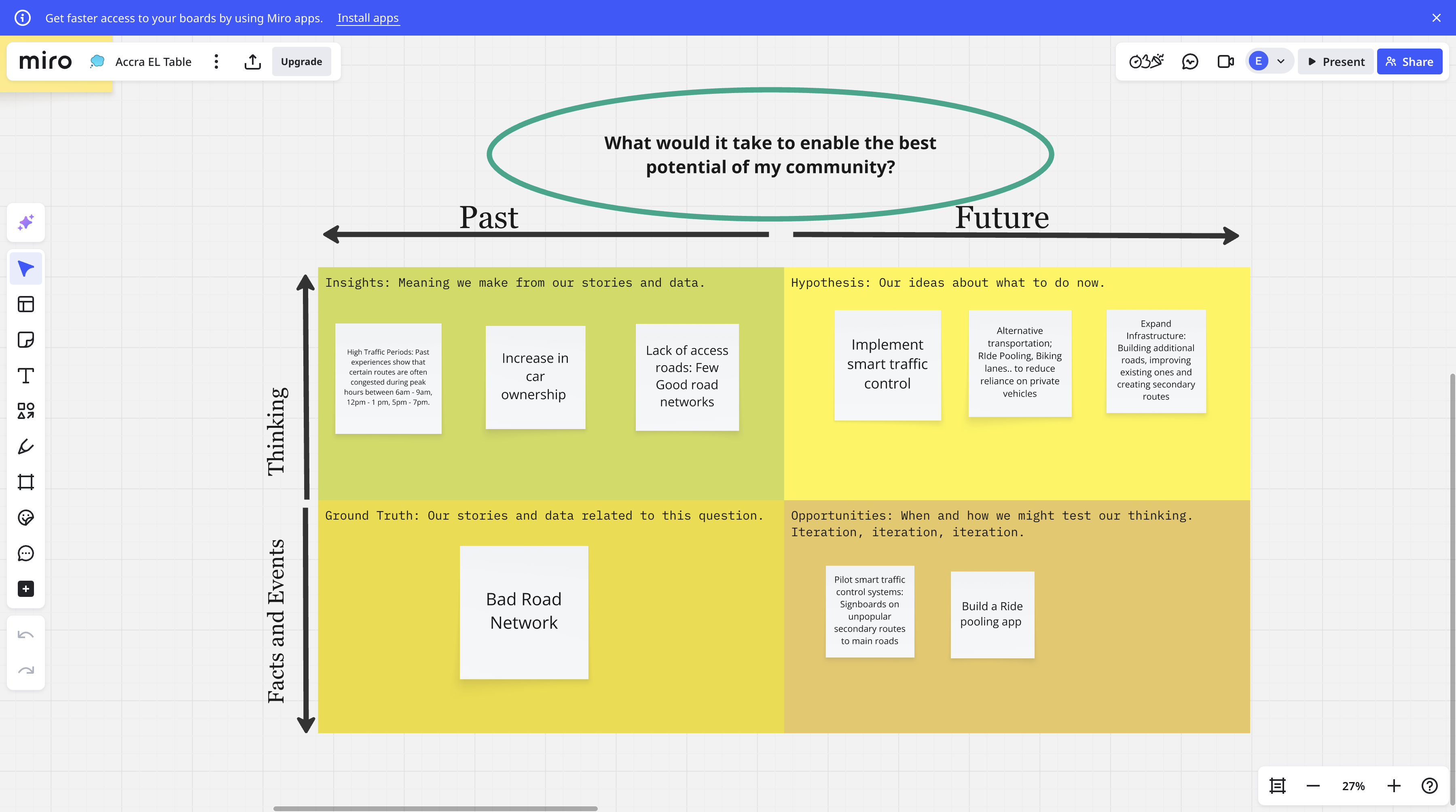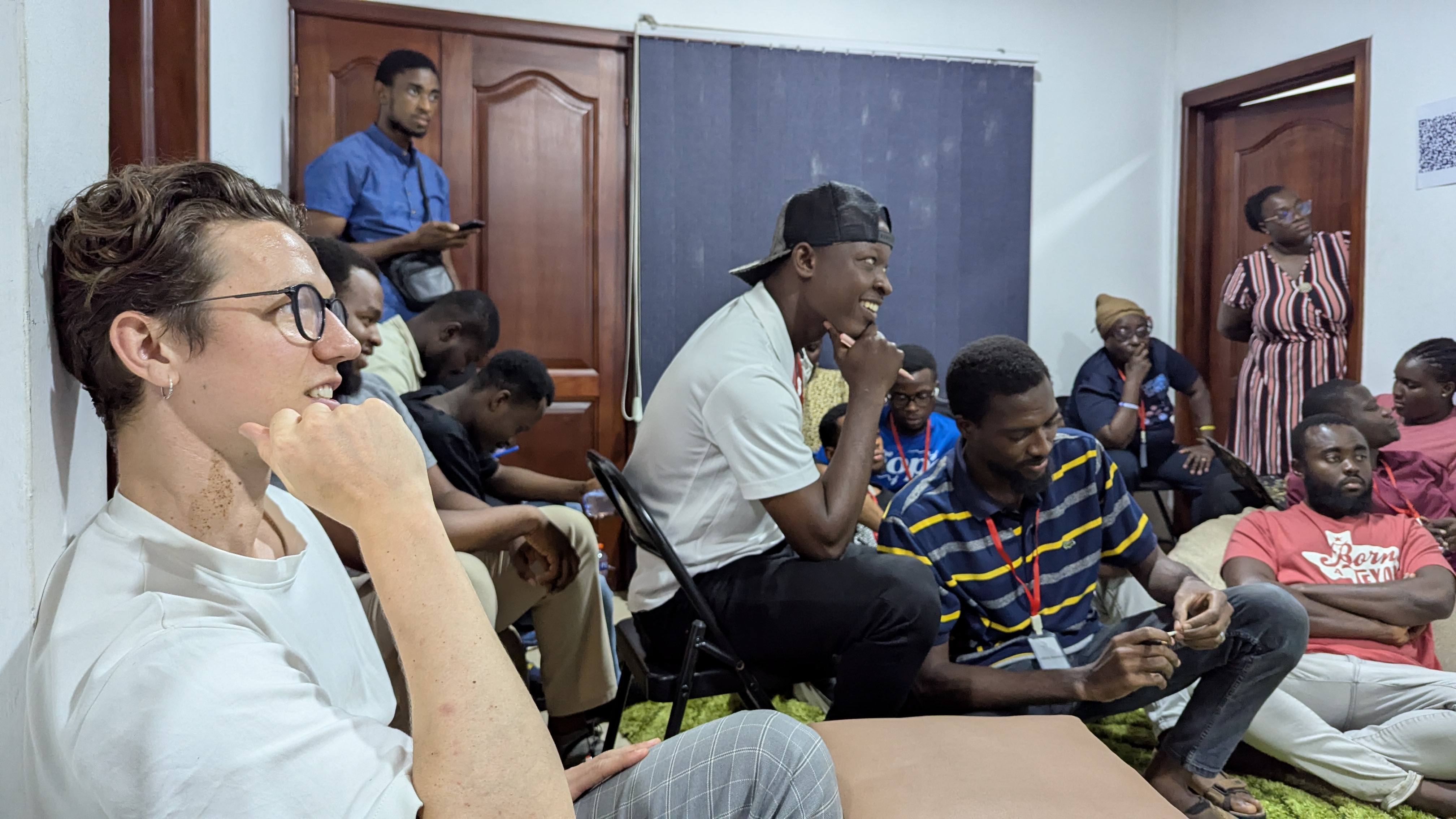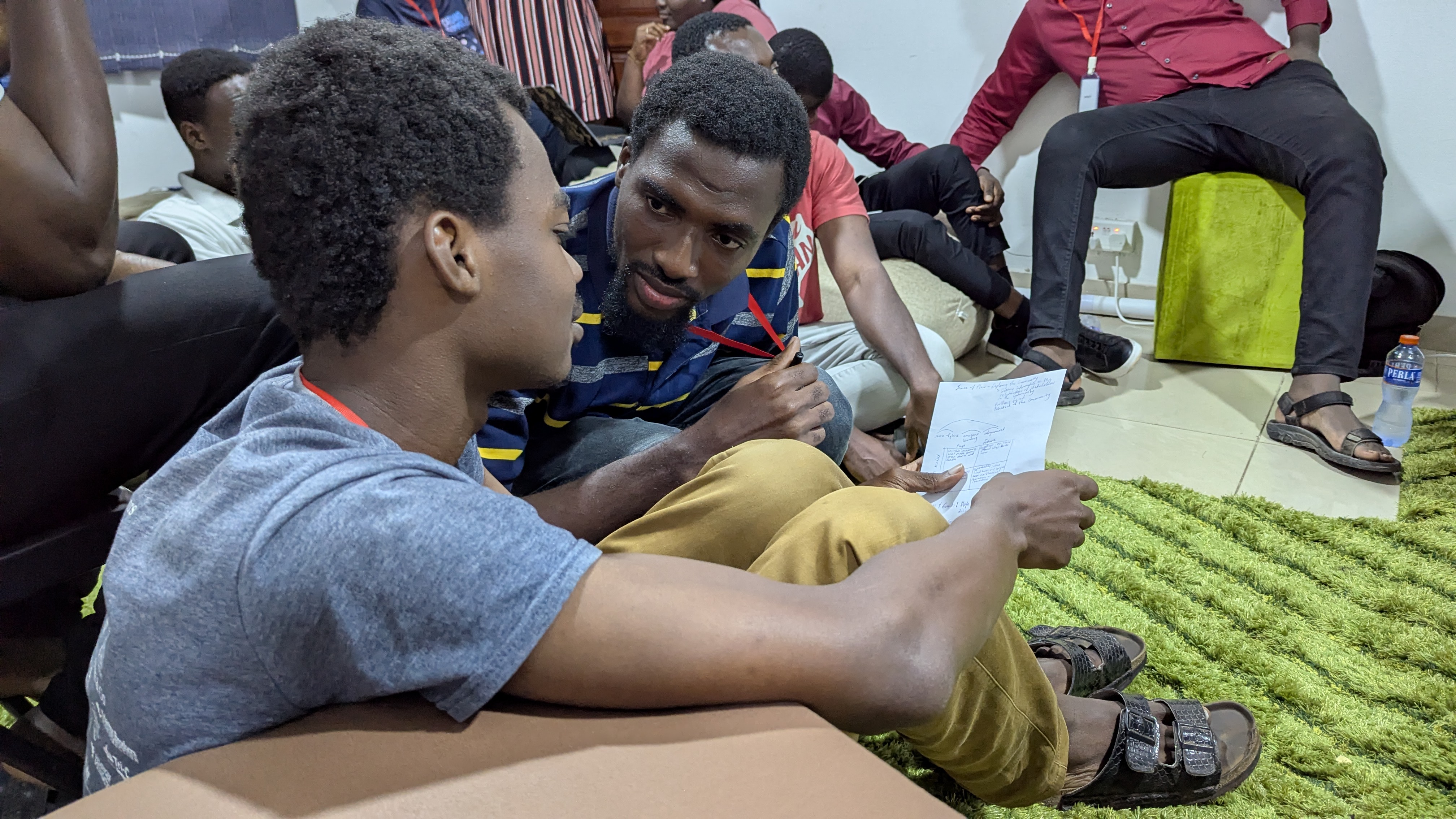Day 2 - Accra Action Learning Journey¶
Day 2 built on our embodied practices, moving from individual reflection to collective sense-making. The sessions aimed to surface community insights and prototype actionable solutions, fostering an atmosphere of curiosity, experimentation, and shared leadership.
Wake-up Session: Deepening the Action Learning Journey¶
The day began at 9:30 AM GMT with Tabs guiding participants through a deeper exploration of the Action Learning Journey. Key highlights included: - Potentialising: Clarifying this term and its practical application. - Leadership in Action: Encouraging participants to step forward as leaders in real time. - Role Exploration: Discussing the importance of defined roles and how they emerge in group dynamics.
Participants shared brief reflections on how the concepts of potentialising and emergent leadership felt different from typical training. This debrief helped ground the theoretical ideas in lived experience.
A visual diagram of the full Action Learning Journey remained displayed to anchor the morning’s discussions.\
 Tabs walking participants through self-organising leadership
Tabs walking participants through self-organising leadership
Morning Session: Emergent Learning (EL) Tables¶
 At 11:00 AM GMT, Delphine introduced the Emergent Learning Tables, structured into four quadrants:
1. Past
At 11:00 AM GMT, Delphine introduced the Emergent Learning Tables, structured into four quadrants:
1. Past
- Ground Truths (Facts & Challenges)
- Insights (Data interpretation & meaning)
2. Future
- Hypotheses (Potential scenarios)
- Opportunities (Practical applications)
This exercise encouraged participants to bridge their field observations with creative foresight. By mapping data-driven insights against possible futures, teams could identify leverage points where small interventions might yield significant impact.
Participants walked through their community field observations to populate each quadrant: - Ground Truths: Facts and challenges identified (e.g., flood-prone areas, addiction hotspots, traffic bottlenecks). - Insights: Themes and patterns derived from community interactions. - Hypotheses & Opportunities: Formulated potential community solutions.
Group Breakouts¶
Participants organized into three focus groups:
- Flood Management
- Addiction Intervention
- Traffic Solutions
Across groups, lively debates emerged about prioritizing immediate community needs versus long-term sustainability.
Each group mapped current realities to potential initiatives, yielding: - A community-led flood response plan. - Structured programs to curb substance addiction. - A community ride-sharing software prototype for traffic relief.

 Participants sharing information from their gorup sessions, facilitated by Delfine
Participants sharing information from their gorup sessions, facilitated by Delfine
Afternoon Session: Stretching & Timelining¶
After lunch at 2:30 PM GMT, everyone reconvened with a brief stretching exercise to re-energize.
The stretching break served as a collective reset, reminding participants of the importance of embodied pauses in learning. During the timelining demonstration, real-time data graphs illustrated how contributions accumulated over days, sparking an animated discussion on metrics for social impact.
Sponsorship over Prizes¶
A discussion emerged on using sponsorship instead of prize money. Tabs and Sheikh explained how timelining—tracking contributions over time—would allocate sponsorship funds proportionally. - Demonstration of a timeline network data example. - Decision to film and show the Dream Village concept video in tomorrow’s session.
The group agreed that sponsorship aligned better with the spirit of collaboration, and prepared questions for tomorrow’s deeper dive into tracking tools.
What’s Next?¶
On Day 3, at 9:30 AM GMT, Shikhar will lead teams through Evaluation Methods, guiding participants to assess their Emergent Learning outputs and refine their solutions.
Participants were asked to come prepared with one key lesson learned today to share at the start of Day 3.